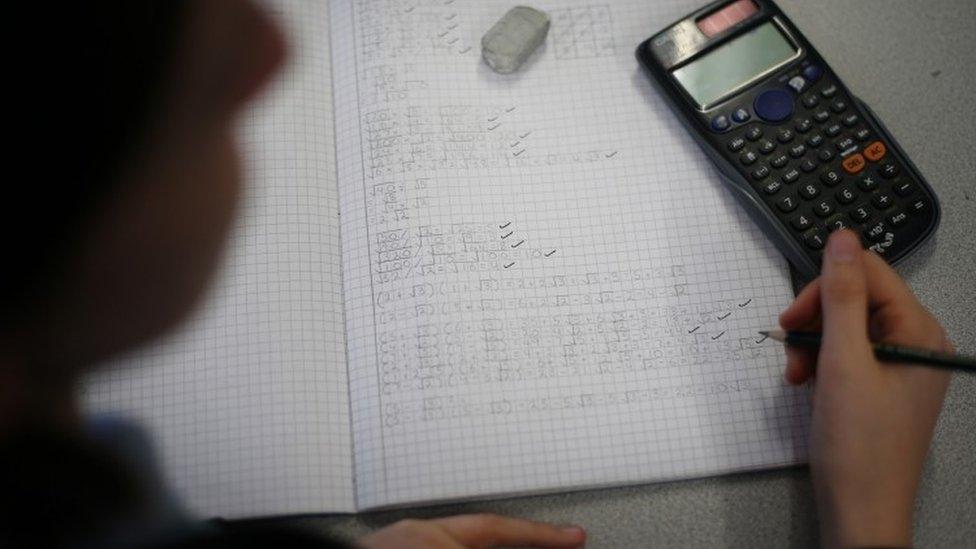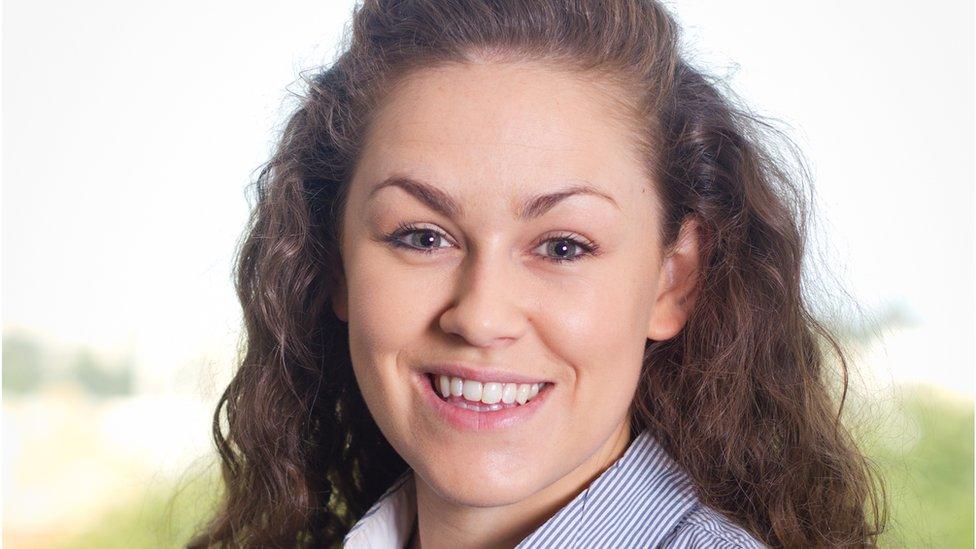School exclusion of autistic boy unlawful, judge rules
- Published

The exclusion of an autistic boy after he hit a teaching assistant with a ruler, punched her and pulled her hair, was unlawful, a court has ruled.
Following the incident in February 2016, the child, known only as "L", was given a one-and-half day exclusion.
But a judge in the Upper Tribunal has ruled that "aggressive behaviour is not a choice for children with autism".
Campaigners say the ruling will have a major impact on future generations of children on the autism spectrum.
The Department for Education says it will consider the implications of the ruling.
What was the case about?
The case, which was funded by the Equality and Human Rights Commission, centred on the fact that children with disabilities that mean they have "a tendency to physically abuse" are not protected by the Equality Act 2010.
This means that children like L are not treated as "disabled" in relation to their physically aggressive behaviour and so cannot challenge decisions to exclude them from school.
Judge Rowley, who examined whether this rule was in breach of L and other children's human rights, found that this rule came "nowhere near striking a fair balance between the rights of children such as L on the one side and the interests of the community on the other".
Judge Rowley said that "aggressive behaviour is not a choice for children with autism".
"In my judgment the Secretary of State has failed to justify maintaining in force a provision which excludes from the ambit of the protection of the Equality Act, children whose behaviour in school is a manifestation of the very condition which calls for special educational provision to be made for them.
"In that context, to my mind it is repugnant to define as 'criminal or anti-social' the effect of the behaviour of children whose condition (through no fault of their own) manifests itself in particular ways so as to justify treating them differently from children whose condition has other manifestations."
Polly Sweeney, human rights partner at Irwin Mitchell, which represented the family, said: "We are delighted with this outcome and pleased that the Upper Tribunal has recognised, in strong terms, that the profound and severe discriminatory impact that these rules have on vulnerable children such as L when accessing education, is unlawful.

Polly Sweeney says the ruling means all disabled children will get the same safeguards
"As has been made clear in the judgment, this decision does not mean that schools are prevented from excluding children where it is necessary and proportionate to do so.
"However, it will ensure all disabled children are afforded the same safeguards, protections and rights under the law, regardless of whether their disability gives rise to challenging behaviour."
What do the child's parents say?
L's parents said they were "both delighted by this ruling".
"We have always believed passionately that our son and other children in his position should have equal rights to be able to go to school and receive the support they need to achieve the best possible outcomes.
"L's autism means that he will grow up in a world where he will face challenges and adversity throughout his life. School should be somewhere he can go without fear of discrimination or exclusion for actions which he has no control over.
"Knowing that one of the key rules that prevented that has now been found to be unlawful is of great comfort to us, and we hope, many other families."
Melanie Field, executive director at the Equality and Human Rights Commission, said: "We funded this case as we were concerned that children whose disability can result in them being more likely to be aggressive were being unfairly denied access to education.
"We are delighted with this judgement, which will require schools to make reasonable adjustments to try to prevent or manage challenging behaviour and justify that any exclusion in these circumstances is proportionate."
How has the Department for Education responded?
A DfE spokesman said: "The government is fully committed to protecting the rights of children with disabilities, as well as making sure schools are safe environments for all pupils.
"We will be carefully considering the judgment and its implications before deciding the next steps."
Earlier this year, the government launched an external review of exclusions to look at how schools are using exclusions and why some groups are disproportionately excluded.
What do unions make of this?
Paul Whiteman, general secretary of the National Association of Head Teachers, said the decision to exclude a student was "never taken lightly and always as a last resort".
"But school leaders do need the autonomy to decide when and how to exclude students to protect the health, safety, education or well-being of other pupils and staff in the school.
"Schools can't do it on their own. To avoid exclusions, they need support from the other local services around them. The issues that underpin exclusions reach far beyond the school gates, so schools need access to expert resources to help them support at an early stage those students who need more help."
Karen Leonard, from the GMB union, which represents thousands of teaching assistants, said: "GMB's school staff members are attacked at work on a daily basis - from verbal abuse, to being spat at, kicked and punched.
"But they love their jobs, love the kids and want to carry on doing their best for the children. They understand these pupils can lash out and violent incidents can occur."
She added: "All they ask is their school backs them up when it does happen - and takes the common sense steps needed to protect them.
"Throughout this year we have been asking schools to sign up to GMB's code of conduct to ensure attacks on members, when they happen, are dealt with properly."
What does the National Autistic Society say?
Jane Harris from the National Autistic Society, said the verdict could transform the prospects of future generations of children on the autism spectrum.
"The government should recognise this decision and act immediately to make sure that autistic children are no longer unfairly excluded from school.
"We intervened in this case to try to close a legal loophole, which saw far too many children excluded from school. Before this judgment, schools were able to exclude pupils who have a 'tendency to physical abuse', even if the school had made no adjustments to meet their needs" she added.
"Exclusions should only happen as a last resort, when schools have tried every other practical solution. But the loophole meant that there was not enough incentive for schools to make necessary reasonable adjustments. And some schools resort far too quickly to exclusions.
"This contributes to children on the autism spectrum being three times more likely to be excluded than children without special educational needs."